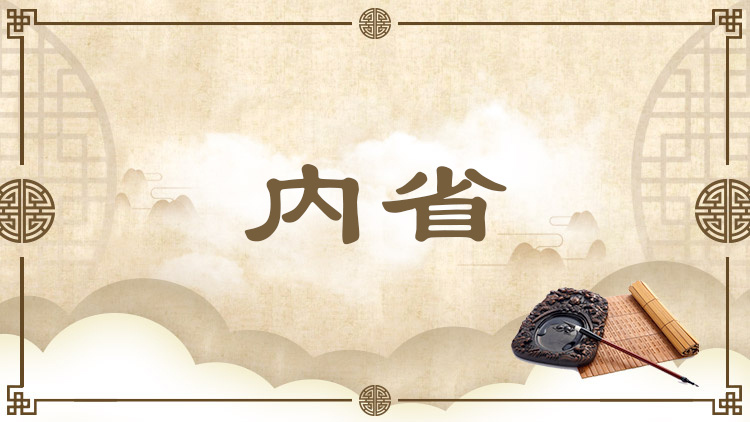内省
Introspection

自我省察。“内省”是儒家所主张的一种道德修养方式。儒家认为,道德的养成固然需要言行符合外在的道德规范,但在根本上取决于内在道德意识的确立。因此,在关注人的言行举止的同时,儒家更重视内心的修养,主张通过不断省察自己真实的用心,确立并持守内在的道德意识。
This term, neixing, means introspection, or self-examination. Introspection was a form of moral cultivation advocated by the Confucians. They felt that while moral cultivation certainly required words and deeds to adhere externally to moral standards, it was fundamentally dependent on the internal formation of moral awareness. Hence, while they were concerned with people's words and deeds, they placed even more emphasis on cultivation of the inner self. They favored constant examination of one's true intentions, as well as the formation and observance of internal moral awareness.
引例 Citation:
◎子曰:“内省不疚,夫何忧何惧?”(《论语·颜渊》)
孔子说:“自我省察而没有愧疚之处,有什么可担忧畏惧的呢?”
Confucius said, "If I examine myself and find no fault, what is there for me to fear?" (The Analects)
推荐:教育部 国家语委
供稿:北京外国语大学 外语教学与研究出版社
责任编辑:钱耐安





